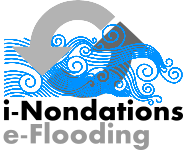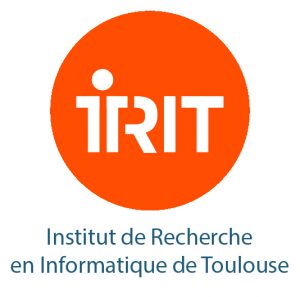

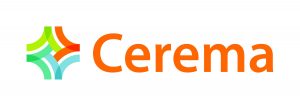
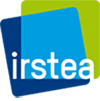

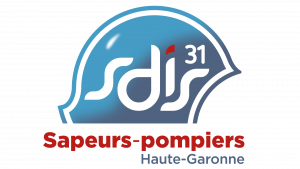
i-Nondations: a french research project funded by the ANR
.
The project i-Nondations (e-flooding) aims to handle fast floods to improve crisis management and resiliency.
Every year floods happen. Solutions exist for slow floods but fast ones are difficult to predict and to handle. This project aims to model fast floods in term of risk management and impact on the infrastructures using data collected by technological or human sensors.
i-Nondations Consortium
 Coordinator : UPS/IRIT was founded in 1990. It is a common research unit of CNRS (Centre National de la Recherche Scientifique), INP (Institut National Polytechnique deToulouse), UT3 (Université Toulouse 3 Paul Sabatier), UT1 (Université Toulouse 1 Capitole) and UT2J (Université Toulouse Jean Jaurès).
Coordinator : UPS/IRIT was founded in 1990. It is a common research unit of CNRS (Centre National de la Recherche Scientifique), INP (Institut National Polytechnique deToulouse), UT3 (Université Toulouse 3 Paul Sabatier), UT1 (Université Toulouse 1 Capitole) and UT2J (Université Toulouse Jean Jaurès).
Research at IRIT covers all research domains in Computer and Information Science.
The SEPIA team is centered on the efficient conception and usage of distributed operating systems, for clusters, grids and clouds. SEPIA developed a strong expertise in energy consumption, management and reduction and autonomic computing. SEPIA participated in EU CoolEmAll project (oct 2011-mar 2014, on middleware and cooling datacenters), ANR SOP project (dec 2011-feb 2015), EU COST Action IC804 (Chair), IC1305 on “Sustainable Ultrascale Computing” (2014-2018) ANR Datazero project (2015-2019).
Key scientists: P. Stolf (project leader), JM Pierson, A. Sayah, P. Renaud-Goud, G. Da Costa, F. Thiebolt.
 Cerema (Center of Expertise on Risks, Environment, Mobility and Spatial Planning) is a public institution under the dual banner of the Ministry of Ecological Transition and Solidarity (MTES) and the Ministry of the Territories Cohesion. In general, Cerema leads expertise, control, monitoring, innovation and research activities in all areas of the Ministry’s missions: spatial planning, transports / mobility, infrastructures, risks, etc. as well as in the field of satellite applications (earth observation and satellite geolocation).
Cerema (Center of Expertise on Risks, Environment, Mobility and Spatial Planning) is a public institution under the dual banner of the Ministry of Ecological Transition and Solidarity (MTES) and the Ministry of the Territories Cohesion. In general, Cerema leads expertise, control, monitoring, innovation and research activities in all areas of the Ministry’s missions: spatial planning, transports / mobility, infrastructures, risks, etc. as well as in the field of satellite applications (earth observation and satellite geolocation).
Cerema’s South-West Territorial Department (Dter SO) is located both in Bordeaux and Toulouse cities and provides the i_Nondations ANR project with its expertise on risks and on the use of satellite imagery to improve the resilience of territories.
Key scientists: C. Bosc, L. Chadourne-Facon, D. Felts, R. Gasset, B. Piccinini

 Irstea (National Research Institute of Science and Technology for Environment and Agriculture) is a research organization which, since more than 30 years, works on major issues of a responsible agriculture and territories sustainable planning, water management and related risks, drought, floods, inundations, the biodiversity and complex ecosystems study in their interrelation with human activities. Multidisciplinary research, appraisal and support to “agri-environmental” public policies “, partnership with territorial authorities and actors of the economic world, such are the characteristics of Irstea, qualified “Carnot Institute”. In the continuity of the research model of Cemagref, every day our engineers and our researchers put a lot of themselves into their mission : to take up the challenge of global change comprehension for a sustainable and environmentally friendly development.
Irstea (National Research Institute of Science and Technology for Environment and Agriculture) is a research organization which, since more than 30 years, works on major issues of a responsible agriculture and territories sustainable planning, water management and related risks, drought, floods, inundations, the biodiversity and complex ecosystems study in their interrelation with human activities. Multidisciplinary research, appraisal and support to “agri-environmental” public policies “, partnership with territorial authorities and actors of the economic world, such are the characteristics of Irstea, qualified “Carnot Institute”. In the continuity of the research model of Cemagref, every day our engineers and our researchers put a lot of themselves into their mission : to take up the challenge of global change comprehension for a sustainable and environmentally friendly development.
Key scientists: P. Bremond, F. Grelot, AL Collard, K. Erdlenbruch
 Enedis. Enedis manages 95% of the electricity distribution network in continental France. This network belongs to local authorities (French municipalities or groups of municipalities), who subcontract to Enedis as an operator through a public service delegation. Enedis thus has 2 major public service duties.
Enedis. Enedis manages 95% of the electricity distribution network in continental France. This network belongs to local authorities (French municipalities or groups of municipalities), who subcontract to Enedis as an operator through a public service delegation. Enedis thus has 2 major public service duties.
- Service continuity and quality: managing nearly 1.3 million km of electric lines, Enedis is responsible for continuous public electricity service. To fulfil this role, the company operates, maintains and develops the network. Enedis also invests in modernising and securing the network, particularly against extreme weather conditions.
- Non-discriminatory access to the distribution network
The South Midi-Pyrénées Regional Directorate manages Enedis activities for the following counties – Ariège, Haute-Garonne, Gers.
In the ANR i_Nondation project, Enedis will provide feedback about flood threats management, the protection of electrical infrastructures and the implementation phase of technological sensors.
Enedis stakeholders : Matthieu Cazeaux (Régional Director), Tony Marchand, Olivier Delcausse.
 SDIS31. The departmental Fire and Rescue Service (SDIS) of Haute-Garonne is an autonomous administrative public body, under the dual authority of the Prefect and the President of the Board of Directors. It is responsible for the prevention, protection and fight against fires. It works with other services and professionals involved in the civil protection, fight against accidents and disasters for the evaluation and prevention of technological/natural hazards and emergency relief. In the framework of its missions, the SDIS has developed an expertise in the operational field of the crisis management. It will put in favor of the ANR i_Nondations project in order to direct the developments towards concrete uses on the ground in the different phases of the crisis. The referent of the project for SDIS 31 is Lieutenant-Colonel Christophe HERAL.
SDIS31. The departmental Fire and Rescue Service (SDIS) of Haute-Garonne is an autonomous administrative public body, under the dual authority of the Prefect and the President of the Board of Directors. It is responsible for the prevention, protection and fight against fires. It works with other services and professionals involved in the civil protection, fight against accidents and disasters for the evaluation and prevention of technological/natural hazards and emergency relief. In the framework of its missions, the SDIS has developed an expertise in the operational field of the crisis management. It will put in favor of the ANR i_Nondations project in order to direct the developments towards concrete uses on the ground in the different phases of the crisis. The referent of the project for SDIS 31 is Lieutenant-Colonel Christophe HERAL.
Key scientists: C. Héral.
